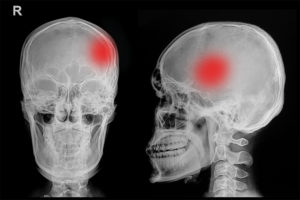Call today and speak to Anna Watson, specialist medical negligence solicitor. Find out if you can claim compensation.
CALL 0800 083 5500
A major study by Danish and American researchers has found that suffering severe concussion in your twenties increases the risk of developing Alzheimer’s and other forms of dementia in the next 30 years by more than two thirds.
 The research is thought to be one of the largest pieces of research into the link between traumatic brain injuries and cognitive decline in later years and has the potential to help GPs diagnose conditions such as dementia to those that have an elevated risk. This in turn has the potential to impact the overall volume of medical negligence claims.
The research is thought to be one of the largest pieces of research into the link between traumatic brain injuries and cognitive decline in later years and has the potential to help GPs diagnose conditions such as dementia to those that have an elevated risk. This in turn has the potential to impact the overall volume of medical negligence claims.
Traumatic brain injury refers to an injury that affects the normal functioning of the brain and is most commonly caused by road traffic accidents, falls and assault. Concussion is generally considered to be a mild traumatic brain injury.
The study used the health records of 2.8 million people over a 36 year time period and established that those who suffered a traumatic brain injury in their 20s were 63 percent more likely to develop dementia in the next thirty years than a person who did not suffer a traumatic brain injury.
If the traumatic brain injury occurred when the person was aged 30-39 then the risk of developing dementia was increased by 37 percent.
Most alarmingly, the research showed that even a single incident of concussion was enough to elevate the chance of developing dementia by 17 percent.
The study shows that the severity of the brain injury, the younger a person is and the more knocks they have received all increase the chances of being diagnosed with dementia later on in life
It is therefore thought that those who regularly compete in high risk sports such as rugby, where concussion is the most commonly occurring injury, or boxing are at elevated risk of developing conditions such as dementia in their later life. As a result of the study, GPs should now be aware of the raised risk and therefore be extra vigilant when treating a patient who falls into this category. This raised awareness may help to reduce the number of GP negligence and delayed diagnosis claims as a result.
Previous research has produced conflicting results in relation to high contact sports and the link to dementia, however, the results of this study have been welcomed by health professionals given that there are 61,000 new cases of dementia occurring every single year in the UK.
Commenting on the research, lead author Professor Jesse Fann, from the University of Washington School of Medicine in Seattle, said:
“Individuals with a history of traumatic brain injury, including those with less severe injuries, have an increased risk of developing dementia, even decades after the injury.However, it’s important to emphasise that although the relative risk of dementia is increased after traumatic brain injury, the absolute risk increase is low. Our findings do not suggest that everyone who suffers a traumatic brain injury will go on to develop dementia in later life.”